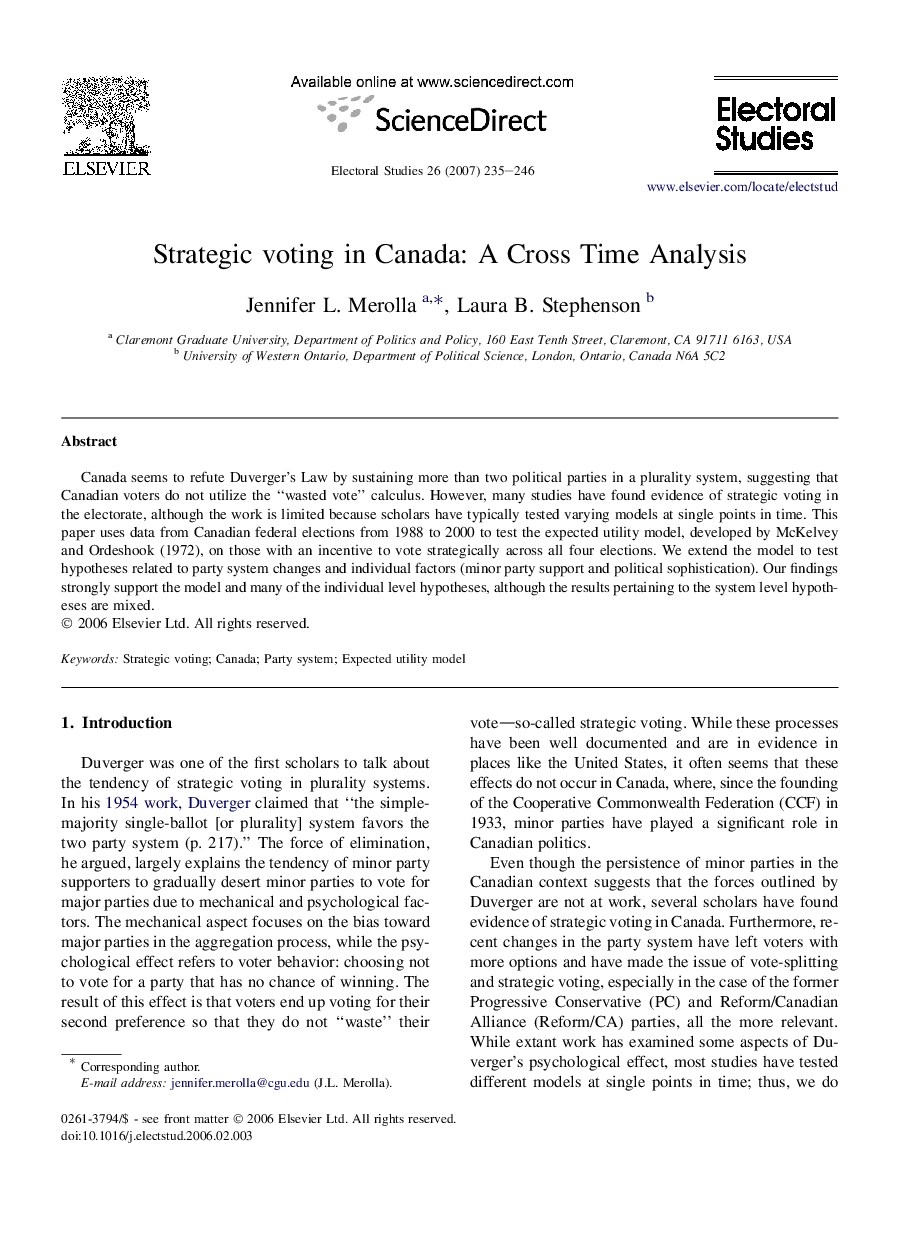| Article ID | Journal | Published Year | Pages | File Type |
|---|---|---|---|---|
| 1052481 | Electoral Studies | 2007 | 12 Pages |
Canada seems to refute Duverger's Law by sustaining more than two political parties in a plurality system, suggesting that Canadian voters do not utilize the “wasted vote” calculus. However, many studies have found evidence of strategic voting in the electorate, although the work is limited because scholars have typically tested varying models at single points in time. This paper uses data from Canadian federal elections from 1988 to 2000 to test the expected utility model, developed by McKelvey and Ordeshook (1972), on those with an incentive to vote strategically across all four elections. We extend the model to test hypotheses related to party system changes and individual factors (minor party support and political sophistication). Our findings strongly support the model and many of the individual level hypotheses, although the results pertaining to the system level hypotheses are mixed.
